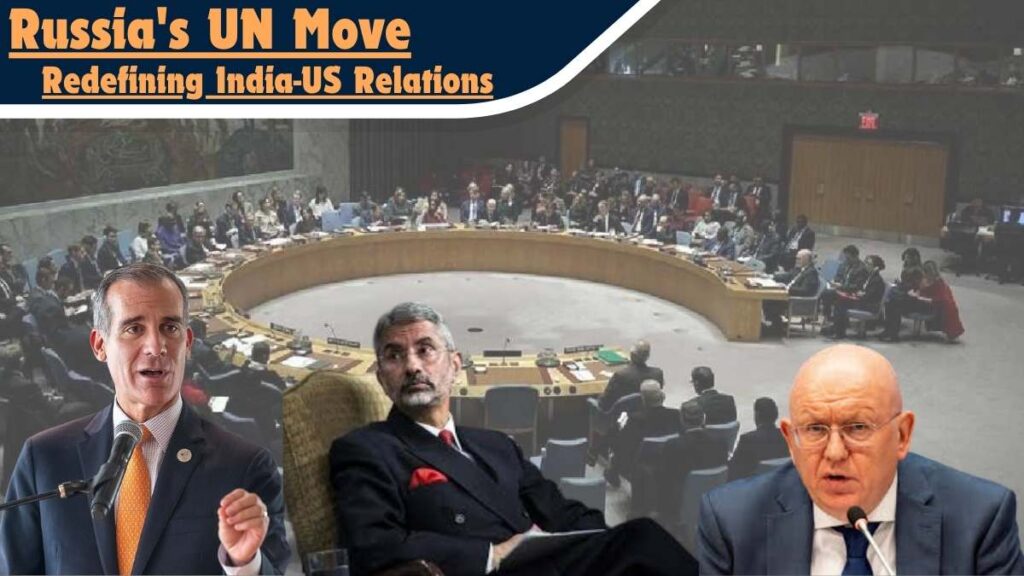In a significant development, Russia has issued a powerful statement in favor of India, not within its borders but on the global stage of the United Nations Security Council (UNSC). As the President of the UNSC, Russia declared India a “great power” that operates according to its national interests. This endorsement is more than just diplomatic rhetoric; it’s a strategic move with far-reaching implications for international politics, especially concerning India-US relations.
Russia’s Leadership in the UN Security Council
For those wondering how Russia assumed the presidency of the UNSC, the process is straightforward yet politically charged. The UNSC comprises 15 members: five permanent (China, France, Russia, the UK, and the US) and ten temporary. One member country assumes the presidency each month, granting them significant influence over the council’s agenda.
Despite efforts by the US and its allies to block Russia’s presidency, it was Russia’s turn in July 2024, a rotation visible on the UN’s schedule. With China’s support, Russia took over the presidency and immediately highlighted issues involving Israel and India, challenging the narrative often dominated by Western powers.
The US Pressure on India
Russia’s declaration at the UNSC has brought to light the pressure the US exerts on India. Recently, the US Ambassador to India, Eric Garcetti, made statements suggesting that India’s stance of strategic autonomy in the Ukraine conflict is untenable. He emphasized that no war is distant in today’s interconnected world, subtly pressuring India to take a clearer stance.
This pressure is not limited to diplomatic statements. The National Security Advisor of the US, Jake Sullivan, has also made significant remarks, underscoring the expectation that India should move beyond its neutral position. The backdrop to these statements is the close relationship between Indian Prime Minister Narendra Modi and Russian President Vladimir Putin. Modi was recently awarded Russia’s highest civilian honor, further solidifying this bond.
India’s Strategic Dilemma
India’s position in the Ukraine conflict has been cautious neutrality. The country maintains strategic autonomy, focusing on its national interests rather than aligning with either side. This stance has allowed India to navigate complex international relations without compromising its sovereignty. However, the US’s recent statements and actions indicate a growing impatience with India’s neutrality.
This situation was further complicated by Ukrainian President Volodymyr Zelensky’s critical tweet regarding Modi’s meeting with Putin, which led to a diplomatic protest from India. The tweet was perceived as an unnecessary critique of India’s foreign policy and its efforts to balance relationships with global powers.
Implications of the US Elections
The upcoming US elections add another layer of complexity to this geopolitical scenario. There is a high possibility that Donald Trump, who has openly criticized the US’s involvement in Ukraine, could win. Trump’s approach, supported by his vice-presidential pick J.D. Vance, suggests a significant shift in US foreign policy. Both Trump and Vance are critical of the Ukrainian government and advocate for reducing US support to Ukraine, potentially easing the pressure on India.
Hungarian Prime Minister Viktor Orbán has stated that Trump has a detailed plan to end the Ukraine war swiftly. If Trump’s administration focuses on the Indo-Pacific region instead, as suggested, the current dynamics involving India, Russia, and the US could shift dramatically.
The Path Forward for India-US Relations
While the current US administration continues to press India on its stance regarding Russia and Ukraine, the outcome of the US elections could pivot this pressure. Trump’s potential return to power could alter the geopolitical landscape, reducing the emphasis on the Ukraine conflict and shifting focus elsewhere.
In the meantime, Russia’s support for India at the UNSC underscores the deepening ties between the two nations. This development is a reminder of the multipolar world we live in, where alliances and partnerships are continuously evolving.
What’s Your Take?
What impact will the US elections have on global politics, especially concerning the Ukraine conflict? Share your thoughts in the comments below. Your perspective is crucial in understanding the broader implications of these geopolitical shifts.

